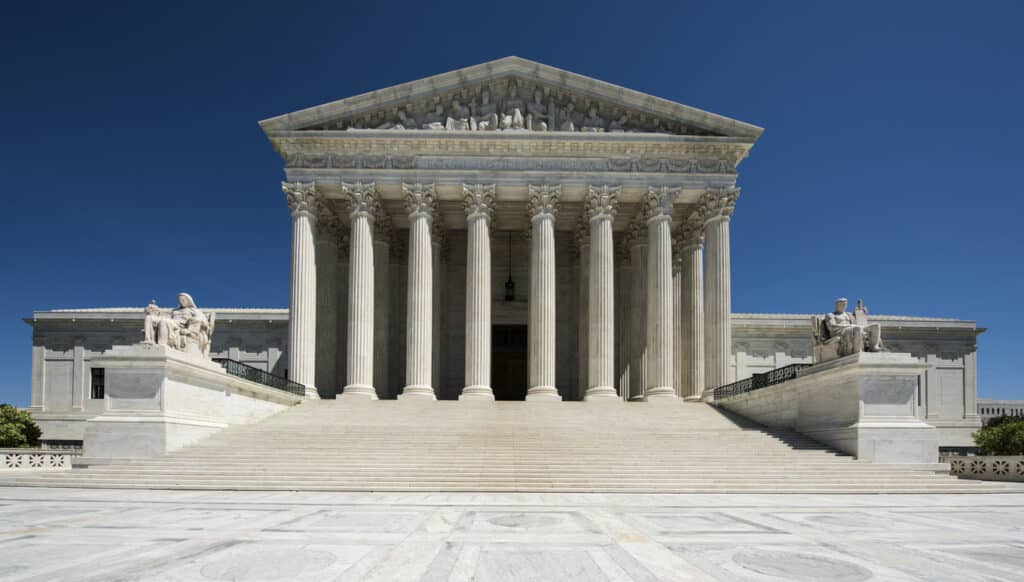On January 24, the U.S. Supreme Court declined to review a decision from the 6th U.S. Circuit Court of Appeals which ruled that the anti-retaliation protections of False Claims Act (FCA) apply to former employees. The Supreme Court’s decision to not review the case means that it will not resolve a split among federal appeals courts over the issue.
In contrast to the 6th Circuit ruling, a 2018 ruling by the 10th U.S. Circuit Court of Appeals held that the anti-retaliation protections of the FCA do not apply to former employees. The Supreme Court’s inaction on the matter leaves uncertainty around the issue.
The FCA is, according to the U.S. Assistant Attorney General, “the most powerful tool the American people have to protect the government from fraud.” The FCA allows whistleblowers to pursue legal action against fraudulent companies on behalf of the U.S. government. If the whistleblower’s qui tam suit is successful, they receive a portion of the monetary sanctions levied against the government. In addition to the qui tam provisions, one of the most vital aspects of the FCA is its anti-retaliation provisions. The FCA protects whistleblowers from being “discharged, demoted, suspended, threatened, harassed, or in any other manner discriminated against” in retaliation for reporting suspected fraud to the U.S government.
The 10th Circuit ruling concerned whistleblower Debbi Potts, a former campus director for the Center for Excellence in Higher Education. Potts came to believe that the for-profit college was lying to its accreditor in an effort to wrongly keep its accreditation. Potts resigned from her position and signed an agreement with the Center for Excellence “providing that she would not disparage or file complaints against the Center in the future.” After Potts alerted the accreditor of the violation anyway, the Center for Excellence sued her for breaching the agreement.
Potts sought protection from the retaliatory lawsuit under the FCA. However, the November 2018 decision from the 10th Circuit determined she was not protected. The opinion states: “We conclude that the False Claims Act’s anti-retaliation provision unambiguously excludes relief for retaliatory acts occurring after the employee has left employment. So our inquiry ends there. Because Potts alleges that the Center retaliated against her after she resigned her employment, she cannot have a cognizable claim under the statute.”
In March 2021, however, the 6th Circuit ruled that FCA protections do extend to former employees. That case involved whistleblower David Felton, who first brought a qui tam lawsuit against William Beaumont Hospital in 2010, alleging a large-scale kickback scheme that the hospital ended up paying $84.5 million in 2018 to settle. Felton alleged that the hospital retaliated against him by blacklisting him and thus preventing him from getting another job after he was fired.
The 6th Circuit determined that even though the blacklisting occurred when Felton was no longer an employee at Beaumont, it still could be considered a retaliatory action under the FCA. Writing for the majority of the court, Circuit Judge John Bush wrote that the word employee has “no temporal qualifier” in the FCA’s anti-retaliation provisions and thus includes former employees. Judge Bush further emphasized the importance of such an expanded definition of employee, writing “[i]f employers can simply threaten, harass, and discriminate against employees without repercussion as long as they fire them first, potential whistleblowers could be dissuaded from reporting fraud against the government.”
The 6th Circuit ruling was applauded by whistleblower advocates. Julie Bracker, an attorney at False Claims Act Counsel who worked on the case, explained to WNN that “[p]rior to this opinion, the 10th Circuit’s decision in Potts v. Center for Excellence in Higher Education, Inc. was the only appellate-level precedent, and it left whistleblowers subject to a draconian rule that insulated employers against liability if they simply fired whistleblowers before harassing and threatening them.”
“The 6th Circuit’s reading of the anti-retaliation provision in accordance with the Supreme Court’s Title VII jurisprudence provides a roadmap for district courts to follow in expanding the reach of whistleblower protections to that which Congress intended,” added Bracker.
The bipartisan False Claims Amendment Act of 2021 addresses the issue by clarifying that the FCA’s protections do apply to former employees. The bill, which whistleblower advocates claim includes a number of needed reforms to the FCA, was advanced by the Senate Judiciary Committee on October 28, 2021 despite lobbying efforts against the bill by the pharmaceutical industry. The bill awaits a full Senate vote.
Read:
SCOTUS won’t decide if whistleblower law protects ex-employees | Reuters
